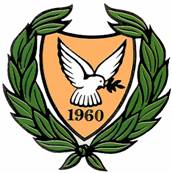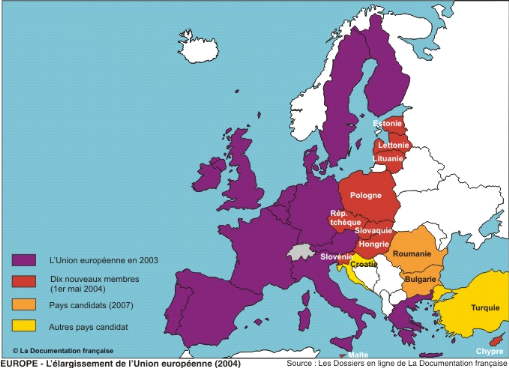Currently, Cyprus has only four Maronite villages, located in north-west and partly occupied by the Turks Kormakiti, Assomatos, Karpasha Ayía and Marina.
During the 1974 invasion, most of the Maronites, in particular young people, have fled their villages and settled in the south of the island where they have slowly rebuilt their lives. Only remained in the villages than older, with the exception of Agia Marina which has been completely abandoned. Until the division of the island, those who settled in the south were allowed to return to their villages, whereas the Turks as a separate community. Today, the transition is much easier for everyone.

Since 1988, Cyprus is a Maronite diocese belonging to the Maronite Patriarch of Lebanon. Bishop Joseph Soueif is present Maronite Archbishop of Cyprus. Born in 1962 he was elected Archbishop of Cyprus, the Maronites October 29, 2008, and consecrated on 6 December. He succeeded Archbishop Boutros Gemayel.
Maronite Parishes are currently eight in number: three in the north, three in Nicosia, one in Larnaca and one in Limassol. They are served by five diocesan priests (four Cypriots and Lebanese) and three monks Antonines (two Cypriots and Lebanese). They have their Kotsatis monastery, a village about 15 km from Nicosia where many Maronites, they also have the burden of the local parish. Antonine Sisters Three Lebanese are with the archbishop. They live in a convent that has been built.
In Cyprus, the Maronite liturgy is celebrated in Arabic and Aramaic, but many parts are now translated into Greek.
2. The Armenian Orthodox
Armenians have lived in Cyprus for centuries. Those who live there now are from Armenia and Turkey after the genocide of 1915-1923. They are about two miles and live mainly in Nicosia, Larnaca and Limassol.
With the Turkish occupation of the island, they lost in Nicosia church, convent, school and houses located behind the church of the Holy Cross. They also had a monastery on the slopes of the mountain Pentadattilo in the northern archipelago of the same name. About two years ago, the Turks wanted to make a hotel or similar establishment. It took many protestations and until the intervention of the Holy See so that the work be suspended.
Currently, the Armenian Orthodox have three churches and three schools in Nicosia. Since 1997, an Armenian bishop lives in Nicosia: Archbishop Varoujan Hergelian, vicar of Catholicosate of Cyprus, Cilicia, with headquarters in Beirut. Before him, a priest was vicar general.
In Nicosia, the Armenians had the Melkonian school, famous not only in Cyprus and the Middle East but also in the United States. This facility, funded by the Melkonian brothers, was built in 1924-1926. In 2005, AGBU (General Union Armenian Charity), which depends on the school, decided to close it, presumably to estimate the ground, at the center of Nicosia, has a very high value. In almost eighty years, over 1,500 young Armenians were graduates of the school Melkonian.
The representative of the Armenian Parliament is Mr. Vartkes Mahdessian, Cypriot Armenian.
3. Latins
The Latin Catholics have a long history in Cyprus. It begins with the occupation of the island by the Knights Templar in the late tenth century, continues with the establishment of the Kingdom of Lusignan (1191-1489) and the domination Venetian (from 1489). The presence Latin ends abruptly with the Ottoman invasion of the island in 1571. Turks n'autorisèrent to stay on the island that the Orthodox and Maronite. Therefore, all religious men and Latin were forced to leave their monasteries and churches, which were either converted into mosques or occupied by the Orthodox. Many Latin faithful left the island. Among those who remained, many became Orthodox and even Muslims, because of the pressures and difficulties of all kinds.
In 1593, the Franciscans of the Holy Land of the Sultan of Istanbul obtained the right to return Cyprus. They settled in the island after the passage of St. Francis, when he went to meet the Sultan of Egypt (1219). Tradition has it that the saint has left two or three brothers on the island. What is certain is that the Franciscans were living in Cyprus at the end of the thirteenth century. For centuries, Cyprus has been for the Friars of the Custody of the Holy Land a place of refuge.
The Latins are not native to Cyprus, and their number is constantly decreasing, mainly due to intermarriage. But towards the end of the twentieth century, the Latin Church was enriched by new followers from Asia: Philippines, Sri Lankan, Indian, etc.. They are mostly women, who work in Cypriot families, embassies or the UN. Added to many students from Asia and more recently in Africa, particularly Nigeria and Cameroon.
Tourism, mostly European and Middle East, is thriving in island. Naturally, institutions and tourist attractions are located along the south coast. The parishes of Limassol, Paphos and Larnaca are directly affected by the phenomenon. Cyprus receives between 2.5 and 3 million tourists each year.
It is difficult to determine the exact number of faithful Roman Cyprus. Try to give some figures:
1. The Cypriots are among indigenous Latin 350, it seems. 2. According to the electoral lists, may vote the Latins are the number 600. So there are indigenous Cypriots who have acquired citizenship of the country. According to official calculations, the 600 voters Latin, we must add at least 300 or 400 family members. We reached the figure of one thousand persons.
3. To this we must add a large group - perhaps 2,000 people - technicians, teachers and Western businessmen settled in Cyprus for a few years.
4. Many retirees, from Great Britain generally, live permanently in Cyprus. They are located mainly along the coast in Paphos, Limassol, Larnaca, but also in the north, in Kyrenia. The majority belong to the Anglican Communion, but there are also many Catholics among them. It is difficult to propose a figure.
5. Then there are foreign workers. These come mainly from the Philippines, Sri Lanka and India. Filipinos, numbering about 7000, are almost all Catholics. Sri Lankan Buddhists are generally, but Cyprus is a Christian country, many Catholics come to that other island. There are about 1500. The Indian Catholic community is not very large: maybe 200 or 300 people. These come mainly from southern India, a region where many Catholics are. The number of illegal immigrants can not be assessed. Lately, many Africans from Cameroon, Nigeria and Congo have begun to arrive in Cyprus. Many of them are Catholic, but it is not yet possible to know their exact number. In conclusion, we can say that the number of foreign workers Catholics is 9000 or 10,000 people, maybe more.
The Latino community has a representative in Parliament. From 1960 to 1976 he was John Pietroni, from 1976 to 1991, Felix de Cirilli Nores, since 1991, Benito Mantovani.
Fra Umberto Barato, OFM
Patriarchal Vicar in Cyprus

 Ambassador of Cyprus in Paris
Ambassador of Cyprus in Paris 

 In mid-August, the Greek Cypriots commemorate the fall of Famagusta port (is) in the hands of the Turkish army in 1974, and Independence Day is celebrated on another date, October 1, Once the freshness back, and most Cypriots have returned from vacation.
In mid-August, the Greek Cypriots commemorate the fall of Famagusta port (is) in the hands of the Turkish army in 1974, and Independence Day is celebrated on another date, October 1, Once the freshness back, and most Cypriots have returned from vacation.  I am writing in my capacity as President of displaced mothers of Cyprus, as a woman and above all as a mother. Since this region we follow and admire your successful career, but also your amazing strength to raise your children and your determination to offer the fair values of life.
I am writing in my capacity as President of displaced mothers of Cyprus, as a woman and above all as a mother. Since this region we follow and admire your successful career, but also your amazing strength to raise your children and your determination to offer the fair values of life. 